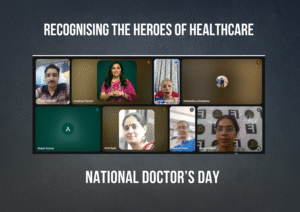Zerodha co-founder Nithin Kamath has once again sounded the alarm on India’s growing diabetes crisis. In his latest post on X (formerly Twitter), Kamath welcomed the Central Board of Secondary Education’s (CBSE) recent directive encouraging schools to install “Sugar Boards” — panels tasked with monitoring and reducing students’ sugar intake. While Kamath praised the initiative as a positive step forward, he also pointed to a larger, more difficult hurdle: getting Indian parents to care.
According to Kamath, the issue extends far beyond school canteens. It’s deeply rooted in everyday household habits. From sugary teas and coffees to chocolates, malted drinks, and sweets, sugar is an inseparable part of the Indian diet — and that’s where the real problem begins. He stressed that curbing these habits at home is just as critical as what happens within school walls.
This appeal is part of Kamath’s broader campaign to raise awareness about India’s escalating diabetes epidemic. With over 21 crore (210 million) Indians currently living with diabetes, the country now holds the dubious distinction of being the diabetes capital of the world. Kamath describes this as a “ticking time bomb,” highlighting how the disease is hitting people across all socio-economic classes and increasingly affecting younger age groups.
The statistics are alarming: a 20-year-old urban Indian woman now has a 64.6% lifetime risk of developing diabetes, while young men face a 55.5% risk. Yet, what makes the situation even more dangerous is how quietly diabetes spreads — nearly 28% of diabetics in India don’t even know they have it. For those who do, proper treatment often remains out of reach. With less than 20% of the population covered by health insurance, most families are left to shoulder the financial burden on their own.
Kamath isn’t selling any miracle cures. Instead, he advocates a straightforward but consistent approach: greater public awareness, early diagnosis, insurance for vulnerable groups, and small daily lifestyle changes — like walking a little more each day or cutting back on screen time and sedentary habits.
In essence, while institutional reforms like CBSE’s Sugar Boards can help steer the younger generation in a healthier direction, the bigger challenge lies in reshaping attitudes at home. Without parental involvement and lifestyle shifts, the fight against India’s sugar addiction may still fall short.







